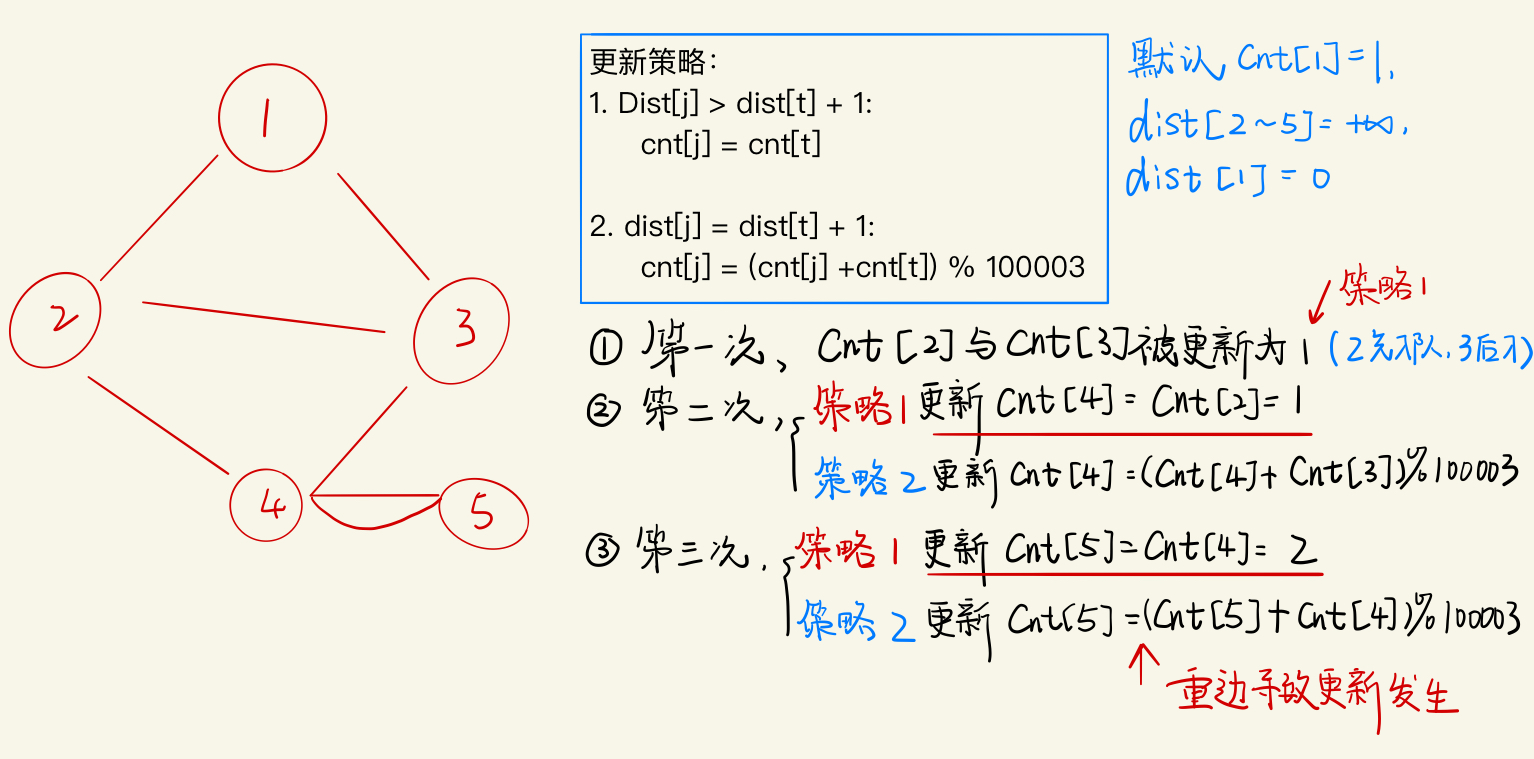最短路计数问题
最短路
题意: 已知起点为1,求经过所有点的最短路径条数
分析: 首先题目肯定是个最短路问题,其次就是按照拓扑序求每个点的被最短路经过的次数
在分析最短路的时候,可能存在两种情况对应最短路:
1. $dist[j] > dist[t] + 1$,这一种对应的是第一次发现最短路的情况,即第一次找到中间点t,其可以作为从起点到j的最短路的桥梁,那么这个时候,经过j的最短路的条数与经过t的一致
2. $dist[j] = dist[t] + 1$,这一种对应的就是,找到一条与历史最短路一样的路径,那么过j点的最短路径总数为(当前过t的与过j的最短路径数之和)
通过题目例子解释:

解题代码如下:
#include <iostream>
#include <queue>
#include <cstring>
using namespace std;
typedef pair<int,int> PII;
const int N = 1e6 + 10;
int n, m;
int h[N], e[N], ne[N], idx;
int dist[N], cnt[N];
bool v[N];
void dijkstra()
{
priority_queue<PII, vector<PII>, greater<PII>> q;
q.push({0,1});
dist[1] = 0;
cnt[1] = 1;
while(q.size())
{
auto t = q.top();
q.pop();
int ver = t.second, dis = t.first;
if(v[ver]) continue;
v[ver] = true;
for(int i = h[ver]; i != -1; i = ne[i] )
{
int j = e[i];
if(dist[j] > dis + 1)
{
dist[j] = dis + 1;
cnt[j] = cnt[ver];
q.push({dist[j],j});
}
else if(dist[j] == dis + 1)
cnt[j] = (cnt[j] + cnt[ver]) % 100003;
}
}
}
void add(int a,int b)
{
e[idx] = b, ne[idx] = h[a], h[a] = idx ++;
}
int main()
{
memset(dist, 0x3f, sizeof dist);
memset(h, -1, sizeof h);
scanf("%d%d", &n, &m);
for(int i = 0; i < m; i ++ )
{
int a, b;
scanf("%d%d", &a, &b);
add(a,b);
add(b,a);
}
dijkstra();
for(int i = 1; i <= n; i ++ )
cout<<cnt[i]<<endl;
return 0;
}

